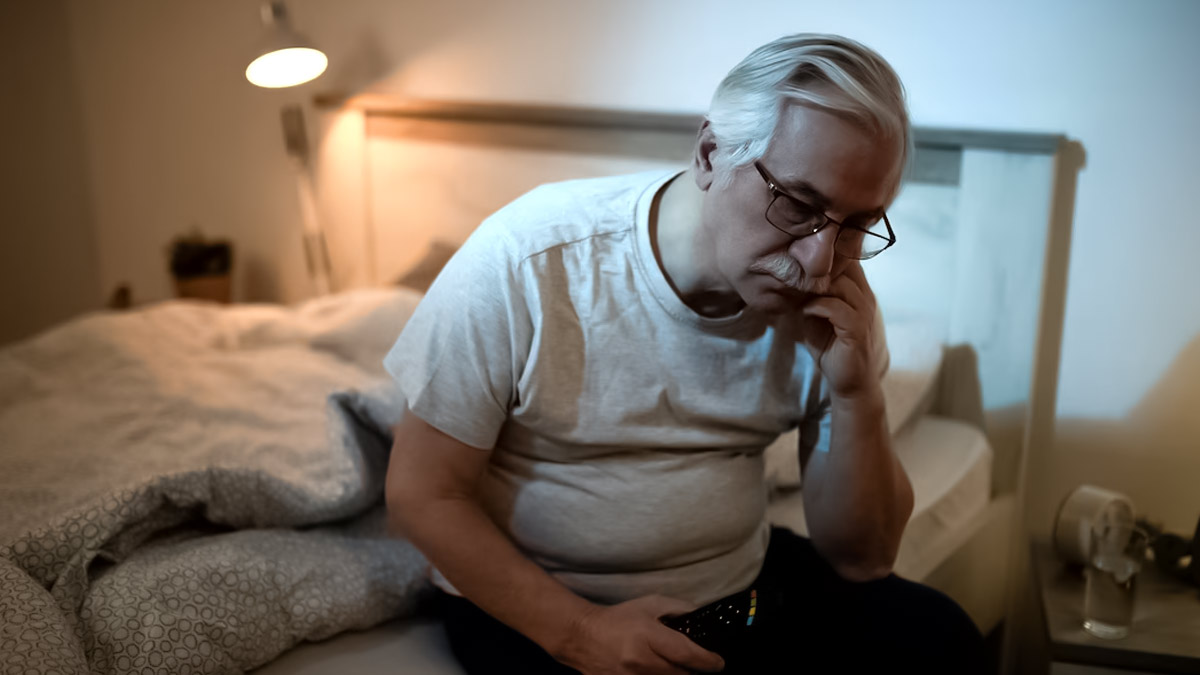
A diabetes diagnosis can give you a scare, mostly because it can dramatically affect the quality of your life. It requires strict dietary and lifestyle changes, constant monitoring of blood sugar levels, and the potential for long-term health complications, which can lead to physical discomfort and emotional stress.
Interestingly, diabetes can affect individuals differently at night, leading to nocturnal symptoms such as nighttime hypoglycemia or high blood sugar levels, which can impact sleep quality and overall well-being. In an interaction with the OnlyMyHealth team, Dr Tushar Tayal, Lead Consultant-Department of Internal Medicine, CK Birla Hospital, Gurugram, discusses the condition in detail.
Also Read: Are You At Risk Of Vitamin B12 Deficiency? Here's What You Need To Look Out For
The Risk Of Diabetic Hypoglycemia

Diabetic hypoglycemia refers to a condition in which blood sugar levels drop below normal levels in individuals with diabetes. The target range for blood glucose levels can vary depending on whether a person has diabetes or not. "For people with diabetes, hypoglycemia is when your blood sugar level is below 70 mg/dL,” said Dr Tayal, adding, "For people without diabetes, hypoglycemia is when your blood sugar level is below 55 mg/dl. It is common in people with diabetes, especially people who take insulin or are on drugs."
Usually, hypoglycemia occurs when there is an imbalance between the amount of insulin or diabetes medication taken and the amount of carbohydrates consumed or energy expended. Hypoglycemia can cause symptoms such as shakiness, sweating, dizziness, confusion, and in severe cases, loss of consciousness. Prompt treatment with glucose or sugar-containing foods is necessary to raise blood sugar levels to a safe range.
According to Dr Tayal, hypoglycemia can be corrected by consuming 15 gms of fast acting carbohydrate such as 1 tbsp sugar or half cup juice or small piece of fruit. Recheck the sugar after 15 min and if it is still below 70 mg/dl, repeat the process, he advised.
What Causes High Blood Sugar At Night?
According to Dr Tayal, sleep is connected to various hormonal and metabolic processes in the body, which is why sleep deprivation and sleep disorders may cause hormonal imbalance, and inflammation. “During sleep, cortisol and growth hormones are released, which cause anti-insulin action and in turn, increase glucose levels. Growth hormone and cortisol are required for healing of all the wear and tear our body sustains during the day. During sleep, the brain activity also slows down which results in lesser glucose utilisation by the body, eventually resulting in a state of insulin resistance and high blood sugars while sleeping,” he explained.
Also Read: My Foot Ulcer Not Healing: Could It Mean Diabetes?
Diabetes Symptoms That Strike At Nighttime

Diabetes symptoms can manifest during nighttime and may include the following:
- Nocturia, which means increased frequency of urination during the night
- Night sweats
- Restless sleep
- Nighttime hypoglycemia include symptoms, such as nightmares, sweating, or waking up with a rapid heartbeat
“Hypoglycemia in diabetics may occur due to wrong dosage and timing of insulin, high dosage of oral diabetic medication, skipping meals or having too much alcohol without eating food,” said Dr Tayal, warning against prolonged hypoglycemia, which can cause cardiac arrest, permanent brain damage and even death.
Other Symptoms Of Diabetes To Watch Out For

Here are some common symptoms of diabetes:
- Feeling jittery
- Frequent thirst and urination
- Extreme fatigue and hunger
- Feeling dizzy, lightheaded, confused, or irritable
- Rapid heart rate
- Headache
- Tingling or numbness in your lips, tongue or cheeks
- Blurred vision or slurred speech
- Clumsiness or difficulty with coordination
- Being disoriented
- Seizure
- Loss of consciousness
Final Word
Do not ignore any signs of diabetes, whether during the day or at night. Diabetes management includes maintaining a healthy diet, engaging in regular physical activity, and closely following medication and monitoring guidelines provided by healthcare professionals.







